The Counter Extremism Project (CEP) compiles summary reports on today’s most influential propagandists and recruiters.
Recruiting Online
Since our launch in 2014, CEP has tracked terrorist recruiters and propagandists operating on behalf of ISIS and al-Qaeda. CEP's Digital Disruption project highlights the systemic problem of online recruitment by profiling dozens of terrorist-affiliated operatives, and calling for action on the part of businesses and service providers to systematically address this major public safety issue.
As part of this effort, CEP has studied the influence and danger of terrorist recruiters operating online. Although many of the extremists listed below are subject to U.N. sanctions, the corresponding arms embargo, travel ban, and assets freeze have done little to address the issue of online recruiting and trafficking. Indeed, individuals working on behalf of such notorious terrorist recruiters as Australian-born ISIS recruiter Neil Prakash and British-born Sally Jones have operated freely online even following their designations in June 2015 and September 2015, respectively.
Following the tragic June 12, 2016, Orlando attack, then-President Barack Obama pointed out that extremist content online is "pervasive" and "easily accessible." Clearly, the ability of terrorist recruiters to successfully use social media, private messaging applications, and other Internet services to recruit remotely to terror remains an ongoing and dangerous problem.

Neil Prakash, also known as Abu Khaled al-Cambodi, is an Australian recruiter and facilitator for ISIS who was detained by Turkish authorities in late 2016. Prior to his detention, Prakash was the most senior Australian fighting with the terrorist group and was sanctioned by the United Nations in June 2015. In the spring of 2015, an ISIS guidebook named Prakash as one of its top recruiters and facilitators. Prakash survived a U.S. airstrike that reportedly targeted him in April 2016. He is reportedly in Turkey and the Australian government has sought his extradition.
For more on Prakash, see CEP’s Neil Prakash report.

Sally Jones is a British recruiter for ISIS who has been sanctioned by the United States, the United Kingdom, the European Union, and the United Nations. Despite these restrictions—including an international assets freeze, travel ban, and arms embargo—Jones has repeatedly reappeared on Twitter, where she has published kill lists of U.S. veterans and threatened terrorist attacks in the United Kingdom.
For more information on Jones, see CEP's Sally Jones report.

Omar Hussain is a U.S.- and U.N.-designated British-born jihadist who reportedly traveled to Syria under the guise of a humanitarian mission to take up arms with ISIS. Since arriving in Syria in January 2014, Hussain has repeatedly taken to social media to threaten attacks on the United Kingdom, as recently as March 2016. He has also promoted what ISIS heralds to be its social welfare via his posts and videos on Facebook, Tumblr, and Twitter.
For more on Hussain, see CEP's Omar Hussain report.

Aqsa Mahmood is a Scottish propagandist and recruiter for ISIS. In 2013, then-19-year-old Mahmood reportedly left her Glasgow home and moved to ISIS-held territory in Syria. Mahmood has propagandized for ISIS on various social media platforms, including Twitter and Tumblr. British authorities suspect that Mahmood used social media to help radicalize British teenagers Shamima Begum, Khadiza Sultana, and Amira Abase, who left their homes for ISIS-held territory in February 2015.
For more on Mahmood, see CEP's Aqsa Mahmood report.

Nasser Muthana, also known as Abu Muthana al-Yemeni, is a British propagandist, recruiter, facilitator, and foreign fighter who has lured individuals to ISIS-held territory via Twitter, Surespot, and other online services. Muthana appeared in the ISIS video, "There Is No Life Without Jihad," boasting that ISIS will "come back and we will even go to Jordan and Lebanon with no problems, wherever our sheikh [Abu Bakr al-Baghdadi] wants to send us."
For more on Muthana, see CEP's Nasser Muthana report.

Raphael Hostey, also known as Abu Qaqa, is a British propagandist, recruiter, and facilitator for ISIS. CEP has monitored Hostey's use of Twitter and other social media platforms—including Tumblr, Ask.fm, and Askbook—to promote and recruit. On Hostey's @Khattab10794099 account, he called himself a co-worker of Australian operative Neil Prakash by linking to Prakash's Surespot account. Hostey was reported killed in Syria in late April or early May of 2016, although the United Kingdom has not formally confirmed his death.
For more on Hostey, see CEP's Raphael Hostey report.
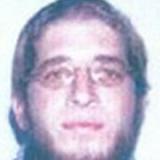
Jehad Serwan Mostafa is an American citizen who moved to Somalia in 2005 and joined al-Shabab, earning him a place on the FBI's Most Wanted list. Mostafa is believed to have trained and instructed al-Shabab militants as well as recruited foreign fighters. He also reportedly carries out social media activities for the terror group.
For more on Mostafa, see CEP's Jehad Serwan Mostafa report.

Ahmad Musa Jibril is an American Islamist preacher who has reportedly influenced Westerners to fight in Syria. From his home in Michigan, Jibril posts Internet lectures praising jihad and Syrian rebels, although Jibril does not specifically call upon his followers to join terror groups. According to a 2014 report by the International Centre for the Study of Radicalisation (ICSR), Jibril is one of the most influential figures for Western foreign fighters to Syria. He "adopts the role of a cheerleader:nwar al-Awlaki (1971-2011), an Amer supporting the principles of armed opposition to Assad."
For more on Jibril, see CEP's Ahmad Musa Jibril report.

Abdullah Faisal, born Trevor Forrest, is an internationally banned propagandist currently operating from Jamaica. Faisal is the leader of Authentic Tauheed, a radical organization aligned with ISIS, with a website available at authentictauheed.com. According to the U.K. government, Faisal played a role in radicalizing December 2001 shoe bomber Richard Reid. Faisal has also been linked to July 2005 London bomber Germaine Lindsay, as well as Zacarias Moussaoui, the only person to have been convicted in a U.S. court for involvement in the 9/11 attacks. The United States has sought Faisal's extradition from Jamaica.
For more on Faisal, see CEP's Abdullah Faisal report.

Abu Sayfillah is an Islamist preacher and associate of Anjem Choudary who uses social media outlets to propagandize in support of ISIS. Sayfillah has operated on Twitter and a YouTube channel, where he has touted the benefits of sharia (Islamic law), and warned against the evils of nationalism, democracy, and interfaith dialogue.
For more on Sayfillah, see CEP's Abu Sayfillah report.
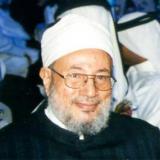
Yusuf al-Qaradawi is an 89-year-old Muslim Brotherhood radical Islamist theoretician and ideologue. His writings, speeches, and fatwas have called for the murder of American civilians and troops in Iraq, the execution of homosexuals, and the killing of Jews. Yusuf al-Qaradawi lives in Doha, Qatar, and reaches a worldwide audience both through his successful television program, al-Sharīʿa wa al-Ḥayāhor "Sharia and Life," as well as through Twitter, where al-Qaradai reaches 1.2 million followers.
For more on al-Qaradawi, see CEP's Yusuf al-Qaradawi report.
For more on CEP's Digital Disruption campaign and opportunities to take action, click here.
For more on recruiters, inciters to violence, and terrorist-affiliated operatives online, see CEP's profiles released in November 2015 and December 2015.
Recruiters Behind Bars
Prisons have proven to be key drivers in the terrorist radicalization and recruitment process. For example, Charlie Hebdo attacker Cherif Kouachi and kosher supermarket gunman Amedy Coulibaly met in France's Fleury-Mérogis prison, where they were reportedly radicalized and cultivated by fellow inmate and failed terrorist plotter Djamel Beghal.
As a result, officials are taking action to disrupt and isolate incarcerated recruiters. Moroccan recruiter Khalid Zerkani, for example, was isolated from the rest of Belgium's prison population in April 2016 after it was revealed that he had ties to at least 22 terrorism-linked individuals. Before Zerkani's 2014 arrest, he had reportedly groomed notorious terrorist recruits, including the November 2015 Paris attacks suspects Abdelhamid Abaaoud and Salah Abdeslam, as well as March 2016 Brussels bomber Najim Laachraoui and suspect Mohamed Abrini. British-based Anjem Choudary, convicted on charges of supporting terrorism, is reportedly linked to at least 80 people implicated in terrorism-related offenses.
These cases underscore the fact that the danger posed by terrorists does not always end upon their arrest. Extremists such as Zerkani and Choudary pose an ongoing risk to their fellow inmates and, through them, the general population.

Khalid Zerkani is a Moroccan recruiter, facilitator, and propagandist serving a 15-year terror sentence in Belgium. Among Zerkani's suspected terrorist recruits are November 2015 Paris attackers Abdelhamid Abaaoud and Salah Abdeslam, as well as March 2016 Brussels bomber Najim Laachraoui and suspect Mohamed Abrini.
For more on Zerkani, see CEP's Khalid Zerkani report.

Anjem Choudary is a British cleric and lawyer, and the founder of the banned terror group al-Muhajiroun. In July 2016, British authorities convicted Choudary and his associate Mohammed Mizanur Rahman with promoting support for ISIS and sentenced them each to five-and-a-half years in prison. Choudary is reportedly tied to more than 80 terrorist-related cases in the United Kingdom and Europe. Due to U.K. probationary law, Choudary was released on probation in October 2018, only halfway through his sentence. British authorities imposed several restrictions on Choudary's communications and travel upon his release.
For more on Choudary, see CEP's Anjem Choudary report.

Mohammed Mizanur Rahman is a U.K.-based propagandist for ISIS. In July 2016, British authorities convicted Rahman and his associate Anjem Choudary with promoting support for ISIS and sentenced them each to five-and-a-half years in prison.
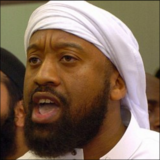
Abu Izzadeen, born Trevor Brooks, is an Islamist propagandist and radical cleric who has been imprisoned in the United Kingdom for inciting and fundraising for terrorism, and for his association with radical Islamist groups Al Ghurabaa and al-Muhajiroun. Izzadeen has used Twitter to praise ISIS and support well-known jihadists such as Abu Rumaysah and Omar Bakri Muhammad.
For more on Abu Izzadeen see CEP's Abu Izzadeen report.

Musa Cerantonio is an Australian Islamist preacher who has inspired numerous foreign fighters to join jihadist groups in Syria. According to the International Centre for the Study of Radicalisation (ICSR), Cerantonio is "an outspoken cheerleader for ISIS" and one of two English-speaking "spiritual authorities" influencing Westerners to fight abroad. Australian police arrested Cerantonio and four others in May 2016 for allegedly preparing to sail to Indonesia with the intent of reaching Syria.
For more on Cerantonio, see CEP's Musa Cerantonio report.
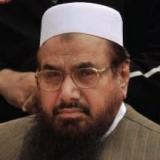
Abu Muhammad al-Maqdisi, real name Assem Barqawi, is considered one of the most prominent Salafist figures in the world. Al-Maqdisi, who has been in and out of Jordanian prison, was a mentor to deceased al-Qaeda in Iraq leader Abu Musab al-Zarqawi. Al-Maqdisi was released from Jordanian prison in February 2015, and is today believed to maintain support for the Nusra Front.
For more on al-Maqdisi, see CEP's Abu Muhammad al-Maqdisi report.
Inciting from the Grave
Some propagandists remain so dangerous that their messages reverberate from beyond the grave. CEP has worked to highlight the scale of the enduring threat posed by some extremist icons, including U.S.-born radical cleric Anwar al-Awlaki. CEP has documented more than 60 U.S. and European extremists who were inspired by Anwar al-Awlaki, even after his death in 2011.
Other major influencers, like Muslim Brotherhood member and author Sayyid Qutb, have arguably provided the ideological foundation for terrorist groups like al-Qaeda and ISIS. Al-Qaeda cleric Abdullah Azzam not only launched the modern foreign fighter jihadist movement, but provided its long-lasting ideological justifications. Since the dawn of the foreign fighter movement in the 1980s, tens of thousands of foreign fighters are estimated to have left their homes to participate in foreign conflicts.
Given the long-lasting impact of these and other major extremist influencers, CEP highlights the dangers posed by the following individuals who, through their writings and sermons, have inspired extremist leaders and terrorist movements around the world.

Anwar al-Awlaki (1971-2011), an American Islamist cleric, was a leader and propagandist for al-Qaeda in the Arabian Peninsula. Al-Awlaki, killed by a drone strike in 2011, was responsible for inspiring a score of terrorist attacks in the United States and Europe. Since his death, al-Awlaki has continued to inspire terrorists through his online videos—including Orlando assailant Omar Mateen—to carry out terror attacks. CEP has catalogued more than 60 cases in which al-Awlaki is believed to have played a key role in radicalizing U.S. and European extremists.
For more on al-Awlaki, see CEP's Anwar al-Awlaki report.
For more on al-Awlaki's radicalizing influence, see CEP resource Anwar al-Awlaki’s Ties to Extremists.

Sayyid Qutb (1906-1966) was an Egyptian author and the lead theologian of the Muslim Brotherhood. Qutb has been called the father of modern Islamic fundamentalism. His extremist beliefs and writings, particularly Milestones and In the Shade of the Quran, are believed to have inspired the leaders of modern Islamist terror groups, including al-Qaeda founders Osama bin Laden and Ayman al-Zawahiri.
For more on Qutb, see CEP's Sayyid Qutb report.

Abdullah Azzam (1941-1989) was a Palestinian Islamist preacher who helped establish al-Qaeda, Hamas, and Lashkar-e-Taiba. Often referred to as the father of both global jihad and the foreign fighter phenomenon, Azzam was instrumental in bringing recruits to Afghanistan in the 1980s. He also served as Osama bin Laden's mentor, and has influenced such notorious terrorists as Abu Musab al-Zarqawi and Anwar al-Awlaki. The 2010 Times Square bomber listed Azzam as an inspiration, as did a 2009 suicide bomber in Afghanistan, who claimed to have targeted a CIA base in order to avenge Azzam's death.
For more on Azzam, see CEP's Abdullah zzam report.

Abul Ala Maududi (1903-1979) was an Islamic theologian, author, and the founder of the political Islamist group Jamaat-e-Islami (JeI). Maududi's Islamist writings helped form the tenets of Qutbism, an ideology that is believed to have inspired numerous violent extremist groups including al-Qaeda and ISIS.
For more on Maududi, see CEP's Abul Ala Maudui report.

Ayatollah Ruhollah Khomeini (1902-1989), a Shiite cleric, was an Iranian revolutionary leader, responsible for establishing Iran as the world's first Islamic republic. Khomeini's form of Islamism has inspired Shiite Islamic extremist groups and terrorists in Lebanon and Iraq, including Hezbollah, Asaib Ahl al-Haq, the Badr Organization, and Kata'ib Hezbollah.
For more on Khomeini, see CEP's Ruhollah Khomeini report.
Spokespersons for Terror
The following individuals serve as formal representatives for sanction-designated terrorist organizations. As spokespersons for terror, these individuals endorse, amplify, and seek to justify the violent acts carried out by their terror organizations. Their various messaging campaigns translate into their abilities to lure new recruits and incite individuals to violence.
Al-Qaeda in the Arabian Peninsula
Al-Qaeda in the Arabian Peninsula (AQAP) is reportedly the most dangerous of al-Qaeda's affiliates. The Yemeni-based terror group is represented by its chief spokesperson, Ibrahim al-Qosi.

Ibrahim al-Qosi, a Sudanese national, is a former Guantanamo detainee who returned to terrorism and became a leader of AQAP. In July 2010, al-Qosi pleaded guilty to charges of conspiracy and material support to terrorism. He was sentenced to 14 years in prison, but was released after two years and was repatriated to Sudan in 2012. Al-Qosi was featured in an AQAP propaganda video in January 2018.
For more on al-Qosi, see CEP's Ibrahim al-Qosi report.
Hamas
Hamas, the Palestian terror group, has separate spokespersons working for its political and military wings, the Islamic Resistance Movement and Izz ad-Din al-Qassam Brigades, respectively. They include:

Sami Abu Zuhri is a spokesperson for Hamas's political wing. In this role, he frequently applauds and praises violent terror attacks in Israel. Following a March 2016 attack, Zuhri said that, "Hamas congratulates the three heroic operations this evening, in Tel Aviv, Jerusalem, and Jaffa, and…the martyrs that have ascended through these operations." Zuhri has been accused of sexually harassing female journalists in the Gaza Strip in 2007 and 2014, respectively.
For more on Zuhri, see CEP's Sami Abu Zuhri report.

Abu Obeida is the spokesperson for Hamas's military wing, Izz ad-Din al-Qassam Brigades. In April 2016, Obeida acknowledged that the terror group was holding four Israelis: two kidnapped Israeli citizens from the Gaza Strip and the bodies of two Israeli soldiers. Obeida appears masked when speaking in public on behalf of the terrorist group and his real name has not been disclosed.

Taher el-Nounou is a spokesperson and media coordinator for the Hamas government in the Gaza Strip and is responsible for launching the 2015 hashtag campaign #AskHamas. Nounou said that the campaign was "aimed at rejecting the labeling of the Palestinian resistance as ‘terrorists,'" and specifically targeted Western and EU audiences in the hopes of pushing the European Union to remove Hamas from its list of terrorist organizations. In 2017, Nounou promoted the idea that Hamas moderated when it released an updated charter that removed specific anti-Semitic language but continued to embrace violence.
Hezbollah
Hezbollah's Secretary General Hassan Nasrallah has frequently provided commentary on the terror group's political and paramilitary activities. Anonymous spokespersons have also provided commentary associated with the group's activities.

Hassan Nasrallah has been the secretary general (leader) of Hezbollah since 1992. Although Nasrallah does not hold political office in Lebanon, terrorism expert Walid Phares asserted, "[Nasrallah is] seen as a messianic figure, much higher than any official in Lebanon." According to the Council on Foreign Relations, Nasrallah has shaped Hezbollah into the dominant political power in Lebanon and is the "driving force" behind the group's military operations.
ISIS
ISIS dispatches representatives to propagandize on the group's behalf on video. Among the group's leaders was ISIS's former spokesperson, Abu Mohammed al-Adnani.

Abu Mohammed al-Adnani, born Taha Sobhi Fahla, publicly proclaimed an Islamic caliphate on ISIS's behalf in June 2014, and named Abu Bakr al-Baghdadi as its caliph (leader). According to the U.S. State Department, al-Adnani was "one of the first foreign fighters to oppose Coalition forces in Iraq." al-Adnani was killed in a U.S. airstrike on August 30, 2016.
For more on al-Adnani, see CEP's Abu Mohammed al-Adnani report.
Kata'ib Hezbollah
Kata'ib Hezbollah (KH) is a U.S.-designated anti-American Shiite militia fighting ISIS in Iraq with ancillary operations in Syria. During the U.S.-led war in Iraq that began in 2003, KH earned a reputation for planting deadly roadside bombs to attack U.S. and coalition forces.

Jaafar al-Husseini is the spokesperson for U.S.-designated Iraqi terror group Kata'ib Hezbollah. In recent years, al-Husseini has released numerous violent,anti-American statements on behalf of the terrorist group, including in December 2015, when he stated that Kata'ib Hezbollah "will chase and fight any American force deployed in Iraq" and that an American force "will become a primary target for our group. We fought them before and we are ready to resume fighting."
Lashkar-e-Taiba
Lashkar-e-Taiba (LeT) is one of Pakistan's largest militant Islamist organizations. The group has instigated terrorist attacks in Kashmir and collaborated with other militant groups, such as the Taliban and al-Qaeda. It is believed to be the only Islamist militant group in Pakistan to have expanded since 9/11. LeT is sanction-designated by the United States, the United Nations, and others.
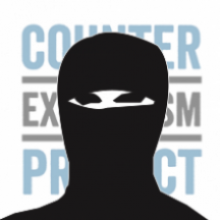
Abdullah Ghaznavi is the spokesperson for Pakistani-based terrorist organization Lashkar-e-Taiba (LeT). In his capacity as LeT spokesperson, Ghaznavi has provided comments to international news agencies and outlets, including the Associated Press.
Muslim Brotherhood
The Muslim Brotherhood has been designated as a terrorist organization in Bahrain, Egypt, Russia, Saudi Arabia, Syria, and the United Arab Emirates. The group nonetheless has affiliates and spokespersons in countries around the world. The Brotherhood's lead spokesperson is Talaat Fahmi.

Talaat Fahmi is the media spokesperson for the Muslim Brotherhood. In this capacity, Fahmi has released numerous statements on behalf of the Brotherhood, including referring to the Egyptian government in June 2016 as "Zionists' henchmen."
For more on Fahmi, see CEP's Talaat Fahmi report.
Nusra Front
The Nusra Front is an internationally sanctioned terrorist group and the second-strongest insurgent group in Syria after ISIS.
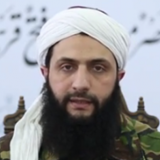
Abu Muhammad al-Golani is the leader of the Nusra Front, now operating as Hayat Tahrir al-Sham. For years al-Golani pledged loyalty to al-Qaeda leader Ayman al-Zawahiri. Al-Golani has sat for interviews with international news agencies and outlets, including Al Jazeera.
For more on al-Golani, see CEP's Abu Muhammad al-Golani report.